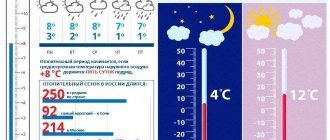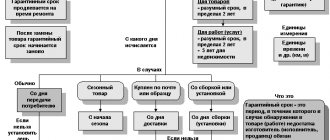Unfortunately, the bailiff service does not always execute court decisions as quickly, efficiently and lawfully as we would like - for various reasons. The balance of rights and interests of the debtor and the claimant may not be respected due to incorrect actions of the bailiff, including the adoption of an illegal resolution, act, etc.
There are several possibilities for appealing against the bailiff’s actions/inactions. You can file a complaint:
- in the order of subordination (i.e. to a higher bailiff),
- to the prosecutor's office or go to court (Article 19 of the Federal Law “On Bailiffs” No. 118-FZ of July 21, 1997).
What is a subordinate complaint?
A universal way, the fastest and most appropriate for expressing dissatisfaction with the current and organizational issues of the bailiff’s activities, when no serious violations have yet occurred and global consequences (such as causing damage, impossibility of further execution of the court decision) have not occurred. For example, the bailiff unreasonably delays in carrying out the enforcement action, and this can be corrected literally within a few days.This is a complaint to the immediate supervisor of the bailiff, a superior person.
You can complain about an ordinary bailiff to the senior bailiff of the department, about a senior bailiff - to the chief bailiff of a constituent entity of the Russian Federation, then - to the chief bailiff of the Russian Federation. (Article 123 of the Federal Law “On Enforcement Proceedings” No. 229-FZ of October 2, 2007).
What to do if bailiffs are inactive
In accordance with paragraph 1 of Art. 12 Federal Law No. 118 “On Bailiffs”, bailiffs are entrusted with the responsibility to take measures to execute enforcement documents issued by the court. The lack of actual execution does not mean that the bailiff is not taking the necessary measures. The decision may not be enforced for objective reasons beyond the control of the bailiff. Measures can be applied by officials of the PCB both on their own initiative and at the request of interested parties - creditors.
The first thing a claimant should do in case of alleged inaction is to contact the bailiff in order to familiarize himself with the materials of the enforcement proceedings. If, based on the results of the review, it is revealed that no enforcement actions or enforcement measures have been applied, the claimant must submit a petition for their application. They can be submitted at any stage of production. Within 10 days, the bailiff is obliged to consider it and make a decision on it by issuing a resolution.
If, despite requests, the bailiff continues to fail to act, his behavior should be appealed.
General rules for drawing up an appeal
A person whose rights have been violated by the incompetent work of servants of the law writes a complaint, which is documented in writing. It can be handwritten or printed on a computer. The law does not provide for a clearly established sample of registration. However, there are certain general requirements:
- Name of the person or body to which the appeal is sent;
- Applicant's passport details;
- Contact phone number;
- FULL NAME. a judge whose unlawful actions became the reason for the appeal;
- Statement of facts of violations with obligatory reference to specific provisions of the law;
- Requirements for restoration of violated rights;
- Date of filing the complaint with the signature of the applicant.
In general, the application must be drawn up in two copies. One is sent to the appropriate authority for consideration, the second remains in the hands of the applicant. It is on this copy that a note about acceptance is made indicating the date.
Grounds for a complaint against an FSSP employee
Failure by an official of the PCB to perform the functions assigned to him should be considered inaction. The basis for a complaint against an official of the PCB may be any fact of his failure to take measures provided by law for the timely and complete execution of a court decision. The key reason will be the lack of information about the commission of the action in the IP materials.
Note!
The fact of non-execution of a document cannot be qualified as an inaction of the bailiff if, as part of the proceedings, he took all enforcement actions and enforcement measures, but the location of the debtor or his property was not established.
Examples of inaction:
- non-seizure of the debtor’s property if the amount of debt exceeds 3 thousand rubles;
- failure to send requests to Rosreestr, traffic police, Federal Tax Service, Pension Fund to obtain information about registered property, open accounts, place of employment;
- non-application of temporary restrictions on the debtor to travel outside the Russian Federation or to use special rights;
- failure to verify the property status at the debtor’s place of residence;
- failure to put the debtor or his property on the wanted list if the amount of the debt exceeds 10 thousand rubles and other conditions for its declaration are satisfied;
- failure to inform the head of the investigative bodies about the presence of signs of a crime.
Where to file a complaint
Judges are independent, so it is useless to complain about their unlawful actions to the police or prosecutor’s office - they simply will not accept your application. It is also useless to try to influence judges through the media - at best, the publications will be ignored, at worst, they will be regarded as pressure on the court with subsequent sanctions.
A complaint against a judge must be submitted to the authorities specially created for this purpose. Where exactly depends on the nature of the claim and the status of the judge.
A complaint should be submitted to the judicial commission before the trial begins, when the judge asks whether the parties agree to resolve their conflict under his jurisdiction. If not, then the applicant must justify his decision. For example, this could be the judge's family connections or his bias in similar cases.
If there is a complaint, the members of the board will retire for a meeting and then announce their decision. It will be final.
If the process is already underway, but the judge behaves inappropriately, then you can complain about him:
- Chairman of the court . You can find out which judge holds this position at the information stand or the official website. Most often, the chairman considers complaints about violations of judicial procedure. For example, if the judge delays the process or ignores a participant in the proceedings.
- Law enforcement officers . This is possible if the defendant is under arrest and simply physically cannot get an appointment with the chairman. In this case, the bailiffs or police will forward the petition or complaint to the chairman of the court or board.
- To the judicial commission . If the challenge is submitted to the chairman of the court, or he is not yet available, then the applicant’s complaint is considered by the collegium. They will order an investigation and consider all aspects of a particular legal proceeding. You can complain about insults, inappropriate behavior, or biased attitudes.
- To the qualification board . This is something like an SRO, but only among judges. It depends on them whether a particular person will continue to hold the position of arbiter of justice. You can contact us for any reason.
If a conflict arises with the arbitration judge, then you can file a complaint through the online service. If you use this site, there is no need to additionally file a complaint through the office or send it by letter. An electronic appeal is equal in force to a written one.
You can only complain online about arbitration judges. If you file a complaint against a magistrate or district judge via the Internet, you must duplicate the document in writing, sending it by mail or courier.
Both the defendant and the plaintiff can file complaints, including through their lawyer. The applicant's citizenship and social status are irrelevant.
It should be noted that in reality, disqualification of a judge on the basis of complaints is extremely rare. However, it is worth filing a complaint. As a rule, after this the judge becomes more responsible in order to avoid similar troubles in the future.
Where to complain if the bailiffs are inactive
There are several authorities to which the claimant has the right to send a complaint against the actions of the bailiff:
- In order of subordination - to the senior bailiff. If the response of the head of the OSB to the complaint does not satisfy the claimant, he has the right to appeal to the chief bailiff of the subject, and in response to his decision - to the chief bailiff of the Russian Federation.
- To the general supervisory authority - the district prosecutor's office. Prosecutors consider complaints containing information about violations of the law, regardless of the nature of the violation.
- Challenging inaction in a court of general jurisdiction. It is filed with the court at the location of the PCB where the official whose inaction is being challenged works.
How to properly file a complaint?
Such a complaint can be filed within 10 days after the bailiff committed an action that seems unlawful to you , or after an unlawful inaction was discovered. It should indicate all the data of both the bailiff and the person filing the complaint, describe what exactly seems wrong to you and why (it is advisable to refer to the law), indicate your requirements, i.e. What do you see as a possible way out of the situation: the bailiff performing an action, canceling the decision, etc. However, you can simply indicate a requirement to conduct an internal audit in relation to the specified actions of the bailiff.
Challenging the inaction of a bailiff in court
A judicial challenge is an effective form of complaint, as it allows not only to recognize the bailiff’s inaction as illegal, but also to make other demands related to the proceedings.
Note!
According to Art. 441 of the Code of Civil Procedure, the inaction of bailiffs is appealed in the manner prescribed by the legislation on administrative proceedings. According to Art. 218 CAS, if a citizen believes that his rights, interests or freedoms are violated by the inaction of the bailiff, he files an administrative claim with the court.
How to file a lawsuit against the inaction of bailiffs
When appealing against the bailiff's inaction, the interested party draws up a statement of claim, which, in accordance with Art. 220 CAS must contain:
- name of the court to which it is filed;
- Full name of the plaintiff, his postal address and contacts;
- name, position of the defendant;
- the name of the OSB in which the defendant exercises his functions;
- the date or period of the challenged omission;
- information about what the inaction consists of;
- information about the rights and freedoms that are violated as a result of such inaction;
- Regulations for compliance with which the bailiff’s behavior should be checked;
- information about filing a complaint in the order of subordination;
- requirements to recognize the inaction as illegal and other requirements: to oblige the person to take specific enforcement actions, to cancel the decision to terminate the proceedings.
The claim is accompanied by documents substantiating the applicant’s position and demands: case materials, bailiff’s responses to the petitions. The package of documents can be submitted to the court personally by the applicant, through a representative or by mail. If functionality is available on the court’s website, documents can be sent electronically.
Note!
Applicants are exempt from paying state fees when filing an administrative claim.
mass media
You need to complain wisely
Review of the VKKS RF mail
The right of a citizen to defend his rights is provided for by the Constitution of Russia. Defend in court. Defend by challenging court decisions. Defend by complaining about judges.
Every complaint is the nerve of someone's life. Perhaps for the person who wrote it, it is the last chance to get help and solve their problem.
That is why the authors of complaints are obliged, at least for the sake of their own interests, to ensure that the complaint contains accurate facts and is sent to the correct address to the body of the judicial community or the government body that has the authority to resolve the issue raised.
Every year, the High Qualification Board of Judges of the Russian Federation receives about 10,000 complaints and criticism of judges.
But in this mail array of letters “on the case,” that is, those that would directly relate to the powers of the High Qualification Board of Judges of the Russian Federation and oblige the board to take specific measures, there is hardly a hundredth part.
Analysis of most letters leads to a stable conclusion that their authors do not have any clear idea about the High Qualification Board of Judges of the Russian Federation, its social role, tasks, powers, and finally, whether it has the ability to always resolve issues in this way , as requested by the applicants.
This vagueness of ideas is already visible from the way we are addressed: “Qualification Board of the Armed Forces of the Russian Federation”, “Qualification Commission of the Armed Forces of the Russian Federation”, “Higher Judicial Board of the Russian Federation”, “Qualification Commission of the Collegium for Civil Cases of the Supreme Court of the Russian Federation”.
What these erroneous writings have in common is that the authors of the letters obviously consider the High Qualification Board of Judges of the Russian Federation to be either a certain body of the Supreme Court of the Russian Federation or a supra-judicial body with extraordinary powers. As one of the authors writes, “using the right of the High Qualification Board of Judges, equal to the right of the courts of the second and third instances...”.
The very form of a number of appeals to the board is symptomatic: most of all, it resembles a lawsuit. It is clearly seen that the authors of such appeals rely on the High Qualification Board of Judges of the Russian Federation as a kind of “authority body that controls the correct use of Russian laws by the courts...”.
Let us note that the authors of the letters extend a similar idea of the High Qualification Board of Judges of the Russian Federation (hereinafter HQCC - Ed.) to the qualification boards of judges of the constituent entities of the Russian Federation (hereinafter HQC of the constituent entities of the Russian Federation - Ed.), however, with a lower level of expectations and hopes for satisfaction your claims and demands.
Let us turn to the provisions of the law.
In accordance with the Federal Law “On Bodies of the Judicial Community in the Russian Federation,” the Higher Qualification Court is one of the bodies of the judicial community throughout the country. Eighteen members of the panel - judges - are elected by secret ballot by the All-Russian Congress of Judges. Ten members of the board - representatives of the public - are appointed by the Federation Council of the Federal Assembly also as a result of secret ballot. A member of the board - a representative of the President of the Russian Federation is appointed by the President of the Russian Federation. All 29 members of the board represent different regions of the country. Their general tasks are determined by Art. 4 of the mentioned law and are extensive: assistance in improving the judicial system and legal proceedings; protection of the rights and legitimate interests of judges; participation in organizational, personnel and resource support for judicial activities; asserting the authority of the judiciary, ensuring that judges fulfill the requirements of the Code of Judicial Ethics.
The HQCC operates collegiately, publicly, in compliance with the principles of judicial independence and non-interference in judicial activities. The Supreme Court of Justice, while reporting to the Congress of Judges for its four-year work, is not accountable to it or other bodies for the decisions made (Article 5 of the mentioned law). Decisions of the HQCC can only be challenged in court. (Since this text was prepared before the adoption of the Federal Constitutional Law “On the Disciplinary Judicial Presence”, it could not take into account new legislative realities - Ed.) As a body of the judicial community participating in judicial self-government, the Supreme Court, to a certain extent, has certain state powers , but can neither change nor cancel court decisions, and is also not authorized to “monitor the correct use of laws.”
Moreover, since Articles 9 and 10 of the Law of the Russian Federation “On the Status of Judges in the Russian Federation” directly prohibit “any interference in the activities of a judge in the administration of justice,” the conclusion is extremely clear: this prohibition also applies to the Higher Qualification Court.
The Higher Qualification Court, as part of the system of bodies of the judicial community in accordance with Article 9 of the Law of the Russian Federation “On the Status of Judges in the Russian Federation,” participates in ensuring the independence of judges.
These tasks and principles of activity determine the content and nature of the powers and activities of the Higher Qualifications Committee, as well as the Qualification Committees of the constituent entities of the Russian Federation.
But how do citizens understand the tasks and powers of the VKKS? What is the topic of their appeals? This, in essence, determines: what do they want from us, what are they expected from the qualification boards of judges?
The process of recommending and appointing judges does not go unnoticed by citizens. The HQCC receives letters containing various statements about the facts of life and activities of applicants for judicial positions, as a rule, facts of a negative nature. The collegium is sometimes directly required to block the path to becoming a judge for one or another citizen, in most cases applying for the position of justice of the peace or judge of a district and city court.
Let's look at the law again.
In accordance with subparagraphs 1, 2, 3 of paragraph 2 of Article 17 of the Federal Law “On Bodies of the Judicial Community in the Russian Federation”, the Higher Qualification Court announces in the media about the opening of vacant positions of chairmen, deputy chairmen of federal courts (except for district courts), judges of the Supreme Court of the Russian Federation, the Supreme Arbitration Court of the Russian Federation, federal arbitration courts of districts, arbitration courts of appeal, district (naval) military courts, and also considers applications of candidates for vacant positions in these courts and submits them, respectively, to the Chairman of the Supreme Court of the Russian Federation and the Chairman of the Supreme Arbitration Court of the Russian Federation Federations their conclusions. In cases where the positions of chairmen of higher courts and their deputies become vacant, the Higher Qualification Committee also considers applications from candidates for these positions and submits its conclusion to the President of the Russian Federation.
Consequently, the HQCC does not have the right to consider appeals regarding applicants for positions in other courts; this is the prerogative of the HQCC of the constituent entities of the Russian Federation. As stated in paragraph 1 of Article 19 of the mentioned law, the CCC of the constituent entities of the Russian Federation make reasoned decisions regarding judges of the supreme courts of republics, regional, regional courts, courts of federal cities, courts of the autonomous region and courts of autonomous districts, arbitration courts of the constituent entities of the Russian Federation, justices of the peace, district judges courts (including chairmen and deputy chairmen of district courts), garrison military courts operating on the territory of the relevant constituent entity of the Russian Federation. This means that only the QCC of a constituent entity of the Russian Federation has the right to give opinions on the recommendation of a person for the position of judge in the relevant court or on the refusal of such a recommendation, having previously examined the application and accompanying materials. This means that the HQCC, receiving letters from citizens about the unseemly acts of applicants for the positions of judges of district, city, regional and equal courts, is obliged to forward them either to the HQCC of a constituent entity of the Russian Federation or to the chairman of the relevant court. This establishment of the law is implemented in the daily practice of the HKKS.
The VKKS works in cooperation with the KKS of the constituent entities of the Russian Federation, exchanging information and experience, friendly cooperation, but not leadership. This is due to the Federal Law “On Bodies of the Judicial Community in the Russian Federation”, in which Articles 17 and 19, with the same competence, clearly delimit the powers of the High Qualification Court and the Judicial Court of the subject of the Russian Federation in accordance with the level of the court.
The authors of the letters, dissatisfied with certain contacts with the KKS of the constituent entities of the Russian Federation, demand that the HKKS “conduct an internal audit of the activities of the KKS” and “change the decision of the KKS.” This kind of action could be taken if the KKS of the constituent entities of the Russian Federation were subordinate to the HQKS in the so-called vertical of power. But the law does not provide for relations of subordination between bodies of the judicial community. In accordance with subparagraph 11 of paragraph 2 of Article 17 of the Federal Law “On Bodies of the Judicial Community in the Russian Federation,” the High Qualification Court limits its powers in relation to the Qualification Court to the fact that it “gets acquainted with the work of the qualification boards of judges of the constituent entities of the Russian Federation, hears reports from their chairmen on the work done and gives recommendations aimed at improving the activities of these boards; studies and generalizes the practice of the qualification boards of judges, organizes the training of members of these boards.” Implementing these powers, the Higher Qualification Court, in particular, annually holds seminars and meetings with the chairmen of the qualification boards of judges.
The recent expansion of the competence and powers of the HQQS was expressed, in particular, in the fact that the Federal Law of December 25, 2008 No. 274-FZ added subclause 10.1 to paragraph 2 of the above-mentioned Article 17, according to which the HQQS “considers complaints against decisions of qualification boards of judges of the constituent entities Russian Federation". But let us emphasize that they are based on decisions, and not on any letters from the KKS, even if they only contain clarifications of the legislation. As they say, with all the desire, it is impossible to accept the decision of the QCC as a decision of the chairman of the QCC, which, taking into account the norms of the law, justifies the impossibility of the QCC to interfere in the procedural activities of a judge or to cancel a decision made by the court.
When the authors of the letters ask and demand from the HQCC to “oblige the chairman of the KKS…”, “indicate the KKS...”, the HQKS of the Russian Federation can only state the impossibility of fulfilling such requests or demands due to their non-compliance with the law. It is absolutely clear that the HQCC does not have the right and will not demand or ask the HQC of a subject of the Russian Federation to perform any actions that go beyond the scope of the powers of the HQC or involve a violation of the law.
There are many applicants who send cuttings of publications in the local press to the Higher Qualification Committee as compelling arguments.
Indeed, subclause 2.2 of clause 2 of Article 17 of the Federal Law “On Bodies of the Judicial Community in the Russian Federation” and subclause 1.3 of clause 2 of Article 19 of the same law oblige the Higher Qualification Court and the Qualification Court of the constituent entities of the Russian Federation, respectively, to carry out checks of information published in the media about the behavior of a judge that does not meet the requirements, imposed by the Code of Judicial Ethics, and undermining the authority of the judiciary.
This important innovation, introduced by Federal Law No. 274-FZ of December 25, 2008, increases the importance of materials in the press as carriers of facts, but also contains a significant caveat: the verification is carried out if the conclusion on the recommendation for the position of judge was given by this board. Consequently, publications about a judge to whom recommendations were given by the KKS of the N region should be checked by the same KKS, and no other.
Requirements to assess the knowledge, professional level of a judge, and his compliance with service criteria are often present in citizens’ appeals.
Naturally, elements of assessment to one degree or another always accompany any analysis of the activities of a judge, which is carried out by qualification boards of judges in connection with either a recommendation for a vacant position, or with consideration of a disciplinary sanction, or with a nomination for a state award, or in connection with other questions..
And qualification certification, the result of which is the assignment of a judge to a higher qualification class or retention in the same class, is one of the important powers of the qualification boards of judges. The decision to assign one of the six qualification classes is made taking into account the position of the judge, his work experience and the results of his judicial activities. The reason for certification is the presentation of the chairman of the relevant or higher court, as well as in some cases the statement of the judge himself. For example, at each meeting of the Higher Qualification Committee, dozens of candidates are evaluated for assignment of a qualification class. And not all ideas are satisfied.
The essence of qualification certification is the assessment of the work of a judge by the judicial community itself. But, of course, the qualification board of judges has the right to take into account verified, reliable information from any sources.
Letters from citizens to the Higher Qualification Committee are full of complaints that judges are “recommended decisions from above,” “judges are prompted,” “judges are pressured.” Against this background, most of the demands and requests from the authors of the letters to the Higher Qualification Court look paradoxical, since their essence in the most concise form is this: intervene in the activities of the court!
How else can one evaluate such, for example, lines from letters?
“I ask you to cancel the court decisions of the judges of the first and second instance and the supervisory authority and to adopt a new decision without transferring the case for a new trial”, “to make a decision on my application in the form of a court decision”, “I ask you to cancel the verdict, transfer the case to another judge with the resolution “to acquit” immediately”, “I ask you to file a protest against the verdict of the district court”, “I ask you to issue a resolution to consider the complaint in a supervisory manner”, “initiate a review of my complaint in a supervisory procedure”, “immediately assign the case to a hearing in the cassation board”, “oblige the court to appoint court hearing ensuring my personal participation”, “provide assistance and legal assistance in reclassifying the article incriminated against me”, “oblige the court to send me a copy of the ruling”, “sent a supervisory appeal to the Supreme Court of Russia and ask you to represent my interests in court”, “ oblige the magistrate to comply with the provision of Article 199 of the Code of Civil Procedure of the Russian Federation on the speedy writing of a decision on the case”, “to protect the right of the agricultural cooperative to conduct economic activities by canceling the seizure of property”, “to recognize the ruling as illegal and give an order to reinstate us at work.”
Let us emphasize that citizens expect the adoption of all these measures not from the courts, but from the Higher Qualification Committee. Understanding the seriousness of the life situations in which the authors of these letters found themselves, we nevertheless have to recognize these demands themselves as utopian, since they do not at all correspond to the statutory powers of the Higher Qualification Committee and the Coordination Committee of the constituent entities of the Russian Federation. None of them imply any influence of the High Qualification Court or the Qualification Court of a constituent entity of the Russian Federation on the activities of the court, the organization of legal proceedings, the procedural activities of the judge and his application of substantive law. Neither the HQCC nor the QCC of a constituent entity of the Russian Federation has the right to cancel court decisions, schedule cases for hearing, re-qualify articles, act as a representative of any party in the process, oblige the judge to schedule hearings, etc. and so on. All these issues and problems must be resolved in the manner established by procedural law. It is with regret that we have to state that appeals from citizens and legal entities to the qualification boards of judges on issues that are within the competence of state bodies, not only the judicial, but the legislative and executive branches of government only slow down the consideration and resolution of these sometimes really important problems.
The Higher Qualification Court and the Coordination Committee do not have functions of control over the activities of the court. Therefore, for example, such a request from the applicant as “to take this criminal case under the strictest control in order to comply with the laws of the Russian Federation” and similar ones, of course, remain and will remain unsatisfied.
The desire of the letter authors to obtain legal support for their critical assessments and opinions is understandable. Therefore, they ask to “conduct an expert assessment of the judge’s determination,” “to provide a legal assessment of the validity and legality of the conclusions and decisions made by the judge when considering my supervisory complaint,” and “to conduct a review of the legality of the determinations made by the judges.” Moreover, the scope of such interest goes far beyond the scope of judicial activity itself: “I ask you to sort it out on your own, since the preliminary investigation authorities have ... completely lost confidence”, “conduct a check of the legality of the actions of judges, the prosecutor’s office, the police and the district administration”, “pay special attention to conduct of cases by investigative authorities, the prosecutor’s office, and district courts.” And the VKKS must do all this “immediately, immediately.”
But neither the HQCC nor the QCC of the constituent entities of the Russian Federation are engaged in expert activities and have no right to give public formalized assessments of adopted court decisions, question them, or in any other way create grounds or grounds for appealing judicial acts.
To improve the application of substantive and procedural law and improve the quality of judicial acts, the judicial system itself, which has the necessary legal norms and procedures, has sufficient capabilities. And the bodies of the judicial community are delegated the will of the entire judicial community or part of it to give a public formalized assessment of the actions of a judge in the event of a violation of the Law or the Code of Judicial Ethics. If these violations objectively exist.
The theme of the responsibility of judges is often heard in letters from citizens. The applicants, not limiting themselves to the presentation of violations of laws allegedly committed by judges, demand that they be brought to criminal liability and do this most often like this: “I ask you to petition the Prosecutor General of the Russian Federation to initiate a criminal case against the judge,” “I ask for your petition to the chairman of the Investigative Committee Committee under the Prosecutor’s Office of the Russian Federation by A. Bastrykin to initiate criminal proceedings against judges.” In this case, the applicants refer to the Criminal Procedure Code and federal laws.
It is the Code of Criminal Procedure and the laws that determine the exact opposite course of action. The Law of the Russian Federation “On the Status of Judges in the Russian Federation”, paragraph 3 of Article 16, established: “The decision on the issue of initiating a criminal case against a judge or on implicating him as an accused in another criminal case is made:
- in relation to a judge of the Supreme Court of the Russian Federation, the Supreme Arbitration Court of the Russian Federation, the supreme court of a republic, a regional court, a court of a federal city, a court of an autonomous region, a court of an autonomous district, a district (naval) military court, a federal arbitration court - by the Chairman of the Investigative Court Committee under the Prosecutor's Office of the Russian Federation with the consent of the High Qualification Board of Judges of the Russian Federation;
- in relation to a judge of another court - by the Chairman of the Investigative Committee at the Prosecutor's Office of the Russian Federation with the consent of the qualification board of judges of the corresponding subject of the Russian Federation.
A reasoned decision... of the qualification board of judges on the issue of giving consent to initiate a criminal case against a judge or to involve him as an accused in a criminal case is made within 10 days after receiving a presentation from the chairman of the Investigative Committee at the Prosecutor's Office of the Russian Federation...”
An identical procedure is formulated by the Criminal Procedure Code of the Russian Federation in Article 448.
Therefore, if a citizen considers it necessary to bring a judge to criminal liability, it is advisable to contact the Investigative Committee under the Prosecutor’s Office of the Russian Federation, which is competent and authorized to verify the citizen’s allegations about the judge’s violations of the law and make an appropriate submission to the qualification board.
Often, the authors of complaints directly link the validity of bringing a judge to criminal liability with the decisions he made in the court case. In such cases, it is fundamentally important for them to take into account paragraph 8 of Article 16 of the Law of the Russian Federation “On the Status of Judges in the Russian Federation”: “When considering issues of initiating a criminal case against a judge or involving him as an accused in a criminal case... the qualification board of judges, having established, that the implementation of the specified events or actions is due to the position occupied by the judge in the exercise of his judicial powers, they refuse to give consent to the implementation of the specified events or actions.” Therefore, a citizen who makes such a request, only because the judge made a decision that does not suit the citizen, but it is legal, must understand the groundlessness of his complaint.
It is precisely the substantiation of the author’s statements, the motivation of the demands that is often lacking in the authors of those letters that deal with the disciplinary liability of a judge: “I ask that the chairman of the qualification board of judges... be brought to disciplinary liability”, “I ask that the judge be deprived of the status of a judge and removed from his position”, “we request , based on the laws of the Labor Code, bring the judiciary to disciplinary liability for abuse of their official duties.” At the same time, the letters show the authors’ conviction that they are right, allegedly based on knowledge of the Federal Law “On Bodies of the Judicial Community in the Russian Federation” and the Law of the Russian Federation “On the Status of Judges in the Russian Federation”.
Indeed, the Higher Qualification Court, in accordance with subparagraph 8 of paragraph 2 of Article 17 of the Federal Law “On Bodies of the Judicial Community in the Russian Federation,” “imposes disciplinary sanctions on chairmen and deputy chairmen of federal courts (with the exception of district courts), as well as on judges of the Supreme Court of the Russian Federation, The Supreme Arbitration Court of the Russian Federation, federal arbitration courts of districts, arbitration courts of appeal and district (naval) military courts, members of the Council of Judges of the Russian Federation, the High Qualification Board of Judges of the Russian Federation, chairmen, deputy chairmen of councils of judges and qualification boards of judges of the constituent entities of the Russian Federation for committing them a disciplinary offense."
And the CCC of the constituent entities of the Russian Federation, in accordance with subparagraph 8 of paragraph 2 of Article 19 of the said law, perform the same functions in relation to judges of the relevant courts, including in relation to the chairmen and deputy chairmen of district courts.
But in resolving issues of bringing to responsibility, the procedure and its observance in detail are important.
Thus, paragraph 1 of Article 12.1 of the Law of the Russian Federation “On the Status of Judges in the Russian Federation” establishes that for committing a disciplinary offense, which means a violation of the norms of this law and the provisions of the Code of Judicial Ethics, a disciplinary sanction may be imposed on a judge in the form of a warning or early termination powers. In this case, the decision to impose a disciplinary sanction on a judge is made only by the qualification board of judges whose competence includes consideration of this issue at the time the decision is made. That is, the QCC of any region cannot consider the issue of disciplinary liability of the chairman of the regional court, since this is the authority of the HQCC, and the HQCC cannot consider the issue of disciplinary liability of the chairman of the district court, since this is the competence of this particular QCC, and not any another area. The HQCC can take upon itself the resolution of issues within the competence of the HQCC of a constituent entity of the Russian Federation only “if it is impossible for them to be resolved by these boards” (subparagraph 10 of paragraph 2 of Article 17 of the Federal Law “On Bodies of the Judicial Community in the Russian Federation”). And such a situation arises only when the composition of the committee is less than two-thirds formed, and the board simply cannot begin to work.
It is essential to understand that disciplinary action can take place if there is not only a legal basis for this, that is, the violation of the law itself, but also a certain reason by law. And the law recognizes as a reason, first of all, the presence of a proposal from the chairman of the relevant or higher court, as well as an appeal from a body of the judicial community, which in this case is the council of judges. At the same time, in accordance with paragraph 1 of Article 22 of the Federal Law “On Bodies of the Judicial Community in the Russian Federation,” a submission or appeal from a body of the judicial community to terminate the powers of a judge in connection with the commission of a disciplinary offense “is considered by the qualification board of judges if there is information in the submitted materials confirming the circumstances of the commission of this offense, and data characterizing the judge.”
Complaints and messages from citizens and any bodies and organizations containing information about a judge committing a disciplinary offense cannot in themselves serve as a reason to hold the judge accountable. As stated in paragraph 2 of Article 22 of the mentioned law, such appeals “are checked by the qualification board of judges independently or sent for verification to the chairman of the relevant court. To conduct an independent audit, the Qualification Board of Judges forms a commission consisting of members of the Council of Judges and members of the Qualification Board of Judges, as well as representatives of the public and employees of the staff of the Qualification Board of Judges. The results of the inspection are reported by the commission at a meeting of the qualification board of judges, which makes a decision on the merits.”
Thus, only a decision of the HQCC or the QCC, adopted following the discussion of the report of the commission that verified the complaint and established facts of violation by the judge of the law or the Code of Judicial Ethics, can serve as another reason for bringing the judge to disciplinary liability. Moreover, in any case, the burden of proof falls on the person who applied to the qualification board of judges with a complaint, appeal or presentation.
Every year, the Higher Qualification Court and the Qualification Court of the constituent entities of the Russian Federation warn about 300 judges and almost 70 terminate their powers early. These figures indicate, first of all, that the qualification boards of judges do not ignore violations of laws and the Code of Judicial Ethics by judges, do not conceal them, but, on the contrary, themselves give them an adequate assessment.
If a single letter exposes the nerve of someone’s life, then a collection of letters creates a field of social tension and forms a vector of social improvement in a certain area of life.
It is all the more important that the authors of the letters, before putting pen to paper or sitting down at the computer, determine to whom and where to send the complaint, correlate the problems and issues identified in it with the legally established powers and capabilities of the state or public body.
In a word, you also need to complain competently, so that the complaint will be of any use.*
*Published in the official publication “Bulletin of the Higher Qualification Board of Judges of the Russian Federation” No. 4 (22) 2009.
How to complain to financial control authorities
The procurement participant has the right to file a complaint with the financial control authorities - the Accounts Chamber, the State Financial Control Committee, the Treasury and other departments at the level of executive authorities that are empowered to control the placement of government orders. For example, in case of violations in the field of procurement, the participant has the right to submit a petition to the main control department of the city of Moscow.
Departments consider applications based on the provisions of 59-FZ.
IMPORTANT!
Each agency processes applications within the limits of its authority and has the right to redirect the complaint to another control body.
For example, the main function of the Treasury is to ensure the execution of the state budget. When the department receives a complaint from a procurement participant about restricting competition, the appeal is forwarded to the FAS.
Appeals are submitted in writing or electronically to the department's mail, through a form on the official website or personal account on the Unified Portal of Citizens' Appeals.
The period for consideration of applications is 30 days.
When making a positive decision on a complaint, departments have the right:
- conduct an unscheduled inspection;
- issue an order to eliminate violations;
- bring violators to justice;
- go to court.








